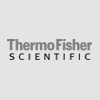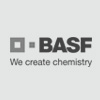Overview:
- Antigen Retrieval Techniques: Current Perspectives
- Antigen Retrieval Immunohistochemistry: Past, Present, and Future
- Fixation and epitope retrieval in diagnostic immunohistochemistry: a concise review with practical considerations
- Antigen retrieval immunohistochemistry and molecular morphology in the year 2001
Mechanism:
- Role of calcium chelation in high-temperature antigen retrieval at different pH values
- Possible role of tissue-bound calcium ions in citrate-mediated high-temperature antigen retrieval
- Microwave-antigen retrieval: the importance of pH of the retrieval solution for MIB-1 staining
- Antigen retrieval in formaldehyde-fixed human brain tissue - pH, temp, duration of heating factors
- Application of the critical molar concentration concept to heat-mediated antigen retrieval in immunohistochemistry
- A molecular mechanism of formalin fixation and antigen retrieval
- DNA Extraction from Archival Formalin-fixed, Paraffin-embedded Tissue Sections Based on the Antigen Retrieval Principle: Heating Under the Influence of pH
- Heat-induced antigen retrieval restores electrostatic forces: prolonging the antibody incubation as an alternative
- Effects of different pH values of fixatives and antigen retrieval buffers on immunohistochemical staining
Methods Comparison:
- A comparison of microwave heating and proteolytic pretreatment antigen retrieval techniques in formalin fixed, paraffin embedded tissues
- Significance of Wet Autoclave Pretreatment in Immunohistochemistry
- A comparison of methods for heat-mediated antigen retrieval for immunoelectron microscopy: demonstration of cytokeratin No. 18 in normal and neoplastic hepatocytes
- High temperature antigen retrieval and loss of nuclear morphology: a comparison of microwave and autoclave techniques
- Comparative study of antigen retrieval heating methods: microwave, microwave and pressure cooker, autoclave, and steamer
- Wet autoclave pretreatment for antigen retrieval in diagnostic immunohistochemistry
- Development of an optimal protocol for antigen retrieval: a 'test battery' approach exemplified with reference to the staining of retinoblastoma protein (pRB) in formalin-fixed paraffin sections
- Antigen retrieval techniques in immunohistochemistry: comparison of different methods
- Variations in effectiveness of antigen retrieval pretreatments for diagnostic immunohistochemistry
- Methods of antigen recovery vary in their usefulness in unmasking specific antigens in immunohistochemistry
- Comparison of the effects of microwave heating and high pressure cooking for antigen retrieval of human and rat Bc1-2 protein in formaldehyde-fixed, paraffin-embedded sections
- Superheating antigen retrieval
Drawbacks:
- Endogenous biotin staining as an artifact of antigen retrieval with automated immunostaining
- Retrieved endogenous biotin: a novel marker and a potential pitfall in diagnostic immunohistochemistry
- The enhanced reactivity of endogenous biotin-like molecules by antigen retrieval procedures and signal amplification with tyramine
- Antigen retrieval: its significance and drawbacks in immunohistochemistry
- Antigen retrieval on formaldehyde-fixed paraffin sections: its potential drawbacks and optimization for double immunostaining
Electron Microscopy:
- An Antigen Retrieval Method Using an Alkaline Solution Allows Immunoelectron Microscopic Identification of Secretory Granules in Conventional Epoxy-embedded Tissue Sections
- An Evaluation of Antigen Retrieval Procedures for Immunoelectron Microscopic Classification of Amyloid Deposits
- Antigen retrieval of loricrin epitopes at desmosomal areas of cornified cell envelopes: an immunoelectron microscopic analysis
- A method for measurements of the efficiency of immunogold labelling of epoxy-embedded proteins subjected to different retrieval techniques
- Antigen Retrieval Trial for Post-embedding Immunoelectron Microscopy by Heating with Several Unmasking Solutions
- pH-dependent effect of heat-induced antigen retrieval of epoxy section for electron microscopy
- Increased level of immunogold labeling of epoxy sections by rising the temperature significantly beyond 100 degrees C in the antigen retrieval medium
Frozen Section Antigen Retrieval:
- Microwave superheating enhances immunocytochemistry in the freshly frozen rat brain
- Antigen Retrieval by Heating En Bloc for Pre-fixed Frozen Material
- A simple and sensitive antigen retrieval method for free-floating and slide-mounted tissue sections
- Antigen retrieval in cryostat tissue sections and cultured cells by treatment with sodium dodecyl sulfate (SDS)
Other Antigen Retrieval Methods:
- Immunoglobulin light chain staining in paraffin-embedded tissue using a heat mediated epitope retrieval method
- An optimal antigen retrieval method suitable for different antibodies on human brain tissue stored for several years in formaldehyde fixative
- One heat-induced antigen retrieval step allows the sequential detection of two antigens on the same slide of tissue fixed and enclosed in paraffin
- Brief, high-temperature heat denaturation (pressure cooking): a simple and effective method of antigen retrieval for routinely processed tissues
- A modified reduced-temperature antigen retrieval protocol effective for use with a polyclonal antibody to cyclooxygenase-2 (PG 27)
- A novel, simple, reliable, and sensitive method for multiple immunoenzyme staining: use of microwave oven heating to block antibody crossreactivity and retrieve antigens
- Microwave antigen retrieval for immunocytochemistry on formalin-fixed, paraffin-embedded post-mortem CNS tissue
















